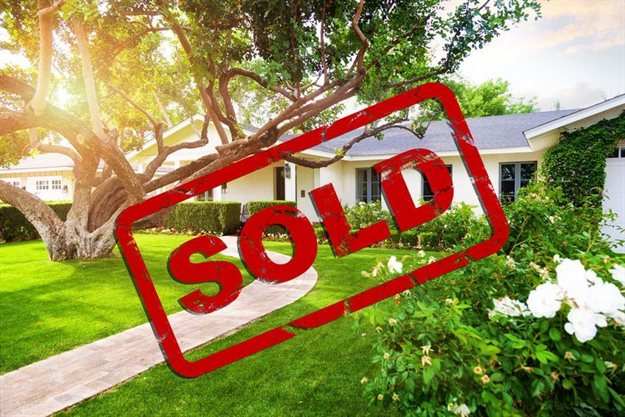Property Trends
sponsored by

What to expect from 2021's residential property market
Considering the challenging year we've just experienced, it would seem contrary to say the housing property market is gearing up for a bumper year ahead. However, given five consecutive repo rate cuts, which has dropped the prime lending rate to a record low of 7%, 2020 has been a surprisingly good year for the property market.
The forecast for the next 12 months looks positive, with several key trends expected to gain momentum:
- We expect more young, female investors to enter the property market. Data from TPN shows that the average investor in South Africa is female and in her early twenties to mid-thirties. FNB reports that the market recovery in the R750,000 to R2 million price band is being driven by this demographic - mostly first-time buyers younger than 35. BetterBond’s average deposit required by a first-home buyer dropped by 18% in October, year-on-year, meaning that less finance is needed upfront to secure a home. The amount required as a deposit for a bond has dropped across all price bands, with the average deposit for homes of between R1 million and R1.5 million coming down by 24% year on year, and dipping by almost 17% for bonds of between R500,000 and R1 million.
- There will be a growing preference for online bond applications as buyers take control of their home buying journey. The increased appetite to apply for a bond, given the favourable interest rates, has seen buyers wanting greater control over their application process. This has resulted in the increased use of digital platforms that allow the user to control the application process end-to-end, rather than sending their documents through and waiting for feedback. As more buyers continue to make the most of the low interest rate, we expect to see more applicants making use of our digital platforms. BetterBond’s application volumes were up 32% year on year in November, and this strong activity is set to continue as the South African Reserve Bank’s forecast shows that the repo rate is likely to gradually increase towards the end of 2021.
- First-home buyers will continue to drive the property market’s recovery and resurgence. More than 70% of BetterBond’s applications, since June, have been first-home buyers making the most of the favourable interest rates. Instead of tapering off, as the prime lending rate has stabilised at 7% with no further repo rate cuts since September, there has been an almost 17% year-on-year increase in first-home buyer applications. We expect this trajectory to continue well into 2021.
- Semigration to coastal areas and smaller towns as remote working changes the way we live. Lightstone property data notes that house prices in the Eastern Cape, Kwazulu-Natal and Mpumalanga have been growing at increasing rates and they now top provincial growth with house price inflation currently above 5% per year. KwaZulu-Natal enjoyed the strongest house price growth in November, year-on-year. Nelson Mandela Bay is the leading metro market for the year to date, outperforming in terms of house price inflation at 5.6% for the year. This is well above the national average of 2.5%. BetterBond has seen an increase in bond applications across all regions compared with the same period last year. Bond applications are up 11% in KwaZulu-Natal, compared with this time last year, while in the Eastern Cape, bond applications have increased by 13%.
- Increasing home values in all price bands with a particular interest in areas that are close to transport, work opportunities and schools. House price growth in the R2 million to R3 million band is strengthening, while the so-called luxury market, of R3 million upwards, will continue to be sluggish. BetterBond has seen an 11.7% year-on-year increase in bond approvals for homes of R2.5 million and R3 million, and an 11.3% increase in approvals for bonds of between R2 million and R2.5 million. While national house price inflation will continue to slow, there will be some growth in the lower to middle price bands, as demand increases.
The freehold housing market, referring to properties where the buyer owns the land and the house, will continue to outperform in terms of house price growth, possibly as the lower interest rate means that buyers can now afford 30% more than they could in January, when the prime lending rate was 10%. Also, buyers are prioritising quality of life after months in lockdown, and properties that can offer a garden and space for a home office, may mean that freehold properties are more appealing.
- Developers will ramp up supply to meet the increased demand from the next generation of buyers. There are no transfer duties payable on a property in a new development, making them ideal for first-home buyers. The average bond size currently approved by BetterBond is just over R1 million, which is the price point at which many new developments are coming onto the market. The largest portion of BetterBond’s bond approvals - just over 40% - are for homes priced between R500,000 and R1 million. With the current low interest rates, it’s possible to buy a property in an area that is guaranteed to have a positive rental yield, creating opportunities for the buy-to-let market. According to TPN, 87% of the investor market own two to four properties, so we expect to see more buyers adding to their investment portfolio in the next 12 months.
- Interest rates will remain in the single digits - and probably below 8% - throughout 2021. The South African Reserve Bank has indicated that there will be no repo cuts in the short term, and potentially two increases of only 25 basis points in the third quarter of next year. There is still ample opportunity to make the most of the favourable lending rate - 2021 will still be a good year to bond.
About Carl Coetzee
Carl Coetzee is the CEO of BetterBond





















